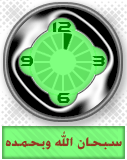People can lose two pounds every month by identifying and avoiding "eating traps" around the home that can contribute to weight gain.
"Our homes are filled with hidden eating traps. Most of us have too much chaos going on in our lives to consciously focus on every bite we eat, and then ask ourselves if we’re full," psychologist Dr Brian Wansink of Cornell University said.
"The secret is to change your environment so it works for you rather than against you,” he said.
His research found that people lost up to two pounds a month after making several simple changes in their environment.
These included serving food on smaller plates, moving healthier types of foods to eye-level in the fridge and cupboard, and eating in the kitchen or dining room, but not in front of the television.
"These simple strategies are far more likely to succeed than willpower alone. It's easier to change your environment than to change your mind," Dr Wansink said.
People are often unaware of how much they eat, particularly if they are distracted.
A study by his research group looked at popcorn eating among 268 moviegoers. When given extra-large containers, the moviegoers ate 45 per cent more popcorn. But when given stale popcorn to eat in extra-large containers, the moviegoers still ate 34 per cent more than people eating fresh popcorn in large containers.
"They just don’t realise they’re doing it," said Dr Wansink.
His research also found that people pour about 37 per cent more liquid into short, wide glasses than into tall, skinny ones of the same volume.
Similarly, another study showed that children given a 16 ounce cereal bowl were more likely to serve themselves twice as much cereal than children given an 8 ounce bowl.
Dr Wansink said it was also a myth that people can realise when they are full and stop before overeating.
In an experiment he conducted, 60 volunteers were given a bowl of soup to eat. However, half were given 'bottomless bowls' which slowly refilled as the volunteers ate.
Those given the bottomless bowls ate 73 per cent more soup without realising it. Both groups of people thought they had eaten until they felt full.
"The lesson is, don't rely on your stomach to tell you when you're full. It can lie," Dr Wansink said.
 الرحيم
الرحيم










